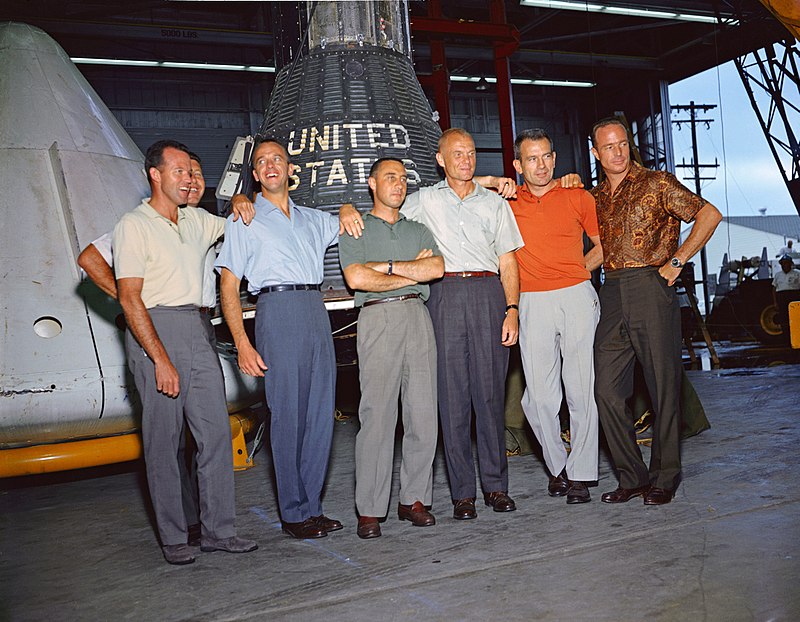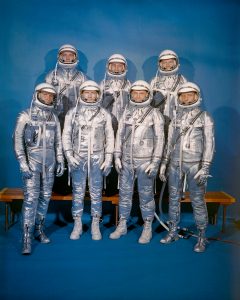Featured Image: Testing of a proposed ablative heat shield concept at NASA Ames Research Center for use on the Mercury spacecraft. (NASA/ARC)
By Wes O’Donnell
Managing Editor, In Space News, In Military and InCyberDefense
On April 9, 1959, the National Aeronautics and Space Administration (NASA) announced the first group of U.S. astronauts. These astronauts were known as the “Mercury Seven,” the “Original Seven” and “Astronaut Group 1.” The group included Alan Shepard, Gus Grissom, Gordon Cooper, Wally Schirra, Deke Slayton, John Glenn and Scott Carpenter.
Get started on your Space Studies Degree at American Military University. |
Although the agency viewed Project Mercury’s purpose as an experiment to determine whether humans could survive space travel, the seven men immediately became national heroes. TIME magazine compared them to “Columbus, Magellan, Daniel Boone, and the Wright brothers.”

NASA wanted to project an image of its astronauts as loving family men and had them dress in civilian clothes for the April 9th announcement in Washington, D.C. Two hundred reporters overflowed the room used for the announcement and alarmed the astronauts, who were unaccustomed to such a large audience.
Astronauts Relied on Support from Their Families
According to the book “The Right Stuff” by Tom Wolfe, when reporters asked the astronauts what their families thought about their taking on such a dangerous job, most of the Mercury Seven were surprised. They had never considered this aspect of their job before.

Glenn replied that he “didn’t think that any of us could really go on with something like this if we didn’t have pretty good backing at home. My wife’s attitude towards this has been the same as it has been all along through my flying. If it is what I want to do, she is behind it, and the kids are too, one hundred percent.”
As the Mercury project gained popularity, its missions were followed by millions on radio and TV around the world. Its success paved the way for Project Gemini, which carried two astronauts in each capsule and perfected space docking maneuvers essential for crewed lunar landings in the subsequent Apollo program.
The Mercury Seven were the foundation upon which the manned U.S. space program was built.

Comments are closed.